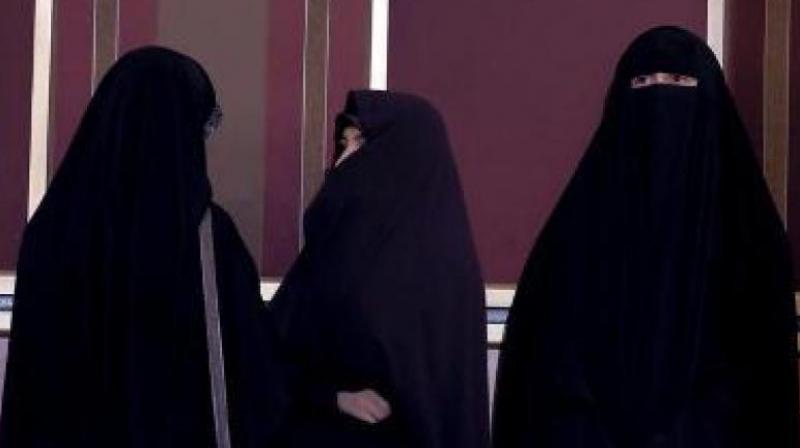-
Tips for becoming a good boxer - November 6, 2020
-
7 expert tips for making your hens night a memorable one - November 6, 2020
-
5 reasons to host your Christmas party on a cruise boat - November 6, 2020
-
What to do when you’re charged with a crime - November 6, 2020
-
Should you get one or multiple dogs? Here’s all you need to know - November 3, 2020
-
A Guide: How to Build Your Very Own Magic Mirror - February 14, 2019
-
Our Top Inspirational Baseball Stars - November 24, 2018
-
Five Tech Tools That Will Help You Turn Your Blog into a Business - November 24, 2018
-
How to Indulge on Vacation without Expanding Your Waist - November 9, 2018
-
5 Strategies for Businesses to Appeal to Today’s Increasingly Mobile-Crazed Customers - November 9, 2018
Hijab-wearing Muslim women face discrimination in United Kingdom, says report
The strategy, devised by Theresa May when she implemented the Counter Terrorism Act a year ago as Home Secretary, is criticised in a new report into job prospects among Muslims by the cross-party women and equalities committee in Parliament.
Advertisement
A landmark Commons report praised “name-blind” applications today as it found the UK’s 2.7 million Muslims are twice as likely to be jobless as the rest of the population.
Maria Miller, the group’s Tory chair, said: “The challenges that the government faces in tackling extremism can not be underestimated but in the course of this inquiry we came across individual Muslims who were reluctant to speak to us for fear that our inquiry was part of the Prevent programme”.
Chair of the Committee, Maria Miller said, “Muslim women particularly face really unacceptable levels of discrimination and that discrimination comes from the workplace, from employers, but also from within communities as well”.
Muslim women protest against the military action taken by the United Kingdom, the US and France against Libya, London, March 21, 2011.
The report argues that the Government must directly address discrimination in the workplace and do more to support people into work.
While 69% of British working-age women were in employment, among Muslim women it was 35%.
Muslims who do have jobs are also paid less than white workers from different faiths, according to the report.
“The Prevent strategy was cited as a significant source of tension by a number of participants”.
The government needs to equip Jobcentre Plus staff with the tools and training to improve their understanding of employment issues faced by Muslim people.
“Everybody is subject to the same law in this country and Muslim women can choose to dress in the way that they want in the same way that other women can and shouldn’t have to suffer discrimination as a result of it”.
Ghani said British Muslims need the government to help them “climb out of structural inequality and poverty as opposed to only interacting with them via the prism of Prevent”.
The report calls on ministers to introduce a coherent cross-Government strategy by the end of 2016 focused on helping specific groups, including Muslims, to run alongside a commitment to tackle disadvantages faced by black and minority ethnic (BME) people.
“The conflation of integration with counter-extremism has exacerbated inequalities experienced by Muslims”, MPs warned.
Advertisement
The committee also found a lack of comprehensive data is making it hard to undertake a detailed analysis of problems, and recommends that more must be done to improve the quality of data so that employers, universities and the government can all support Muslim people in achieving their potential. Such signs can include questioning foreign policy and Western media reporting, as well as feeling reserved and anxious.





























